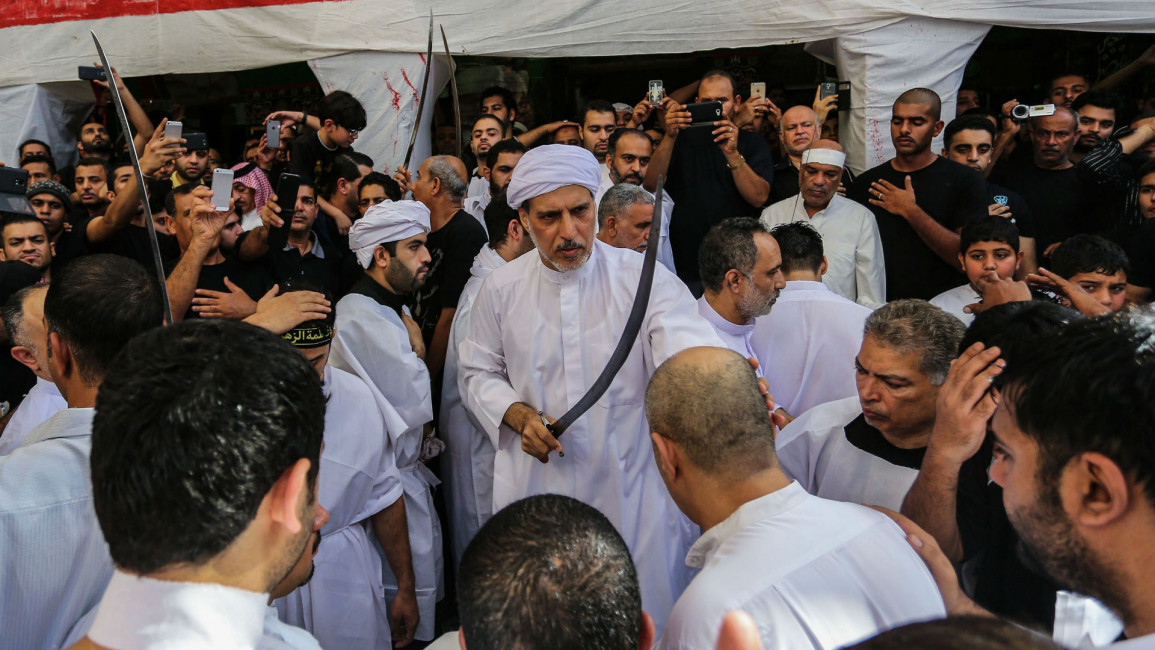Bahrain warns against 'political protests' during Shia-Muslim festival
Bahrain's authorities have warned of a zero-tolerance approach that will be used against those who "misuse the religious occasion of Ashura to engage in criminal activity".
The Islamic commemoration is especially important to Shia Muslims on 12 October, and the mostly Sunni authorities have indicated that protests will not be tolerated from the island state's majority population on the day.
On this day, many Shia Muslims will commemorate the death of the Prophet Mohammed's grandson, Imam Hussain, with marches, rallies and speeches.
"The police are fully committed to carrying out their duties to maintain security, public order and people's safety," Bahrain's Public Security Chief Tariq al-Hassan said.
"Misusing the occasion to engage in criminal activity will not be allowed and those in charge of the commemoration events should make sure to keep the religious aspect of Ashura as the focus of the activities."
With tensions still running high between Bahrain's Sunni monarchy and its Shia-majority population, authorites are wary of political protests that may take place on Ashura.
Ahead of the day, reports have already emerged on social media that police have removed flags and banners deemed inappropriate for their anti-government messages.
"Some of the slogans were political and some of the pictures and flags had nothing to do with Ashura, which constituted a violation of the traditions related to the religious occasion and an assault on public roads and private property, prompting the police to remove them," al-Hassan said.
Bahrain has been shaken by unrest since security forces crushed Shia-led protests demanding a constitutional monarchy and an elected prime minister in 2011.
Despite repeated calls from their Western allies, the kingdom's rulers have made no concessions to the country's Shia opposition, and have intensified a crackdown on critics.



![Squad incumbent Summer Lee has won her district's Democratic primary. [Brooke Anderson/The New Arab]](/sites/default/files/styles/image_330x185/public/2024-04/413898031_1041031157158522_8195934720767720634_n%20%283%29.jpg?h=ff8c3fa3&itok=75Sx6fbL)